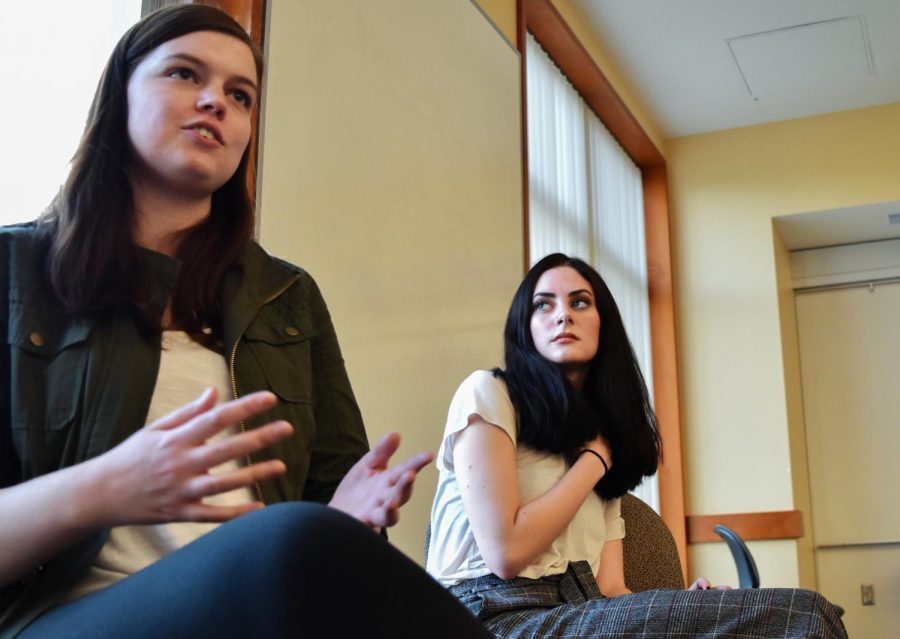Joining WSU political clubs helps restore social civility
Being active in intellectual groups promotes cohesive dialogue, reduces confirmation bias
JENIN REYES | DAILY EVERGREEN FILE
Jordan Smith, left, and Caitlin Boss, right, executive members of the Political Science Club, Sept. 27. The Political Science Club is a space for all students to share their perspectives, Smith said.
October 17, 2018
The best way to remedy the lack of civility in political conversations on college campuses is to join clubs that foster constructive dialogue.
WSU meets its obligation in facilitating a liberal arts education that exposes and challenges students to new ideas.
Our responsibility as students and intellectuals is to constantly challenge the things we learn during our time in college as well as what we think we know.
The way in which we receive information about the U.S., however, has largely gravitated toward emphasizing the value of feeling vindicated over the productivity of conversations or debates themselves.
Confirmation bias allows individuals to enter into a subjective view of reality that constantly reinforces their own opinions, often at the expense of factual evidence.
This causes students to correlate truth with their opinions while dismissing, and even outright refusing, to grant any legitimacy to perspectives that aren’t their own.
As an outspoken conservative that’s immersed in politics, I believe everyone deserves the privilege of having both an opinion on political issues and being able to vocalize it to their informed and respectful peers in a manner that allows conversations to challenge individual perspectives.
By joining political clubs that host an inclusive spectrum of opinions, students can advocate for their own beliefs on issues they feel are important and receive constructive criticism that allows them to think beyond their initial talking points.
“The Political Science Club is a place for students of all political viewpoints to be able to have a civil discussion about current political issues and to be civically engaged,” said Jordan Smith, president of the Political Science Club at WSU. “As President, I hope to equip members with the skills to engage in civilized cross-partisan conversations, which I believe is increasingly important in the current political environment.”
Young Americans for Liberty shares a similar mission, as evident from their Tri-Party Debate, orchestrated last year to provide a range of views on key issues.
Other clubs, like Young Democrats and College Republicans, offer students the ability to join a club that explores political issues on a more ideologically-rooted basis.
These clubs maintain the importance of conversing with students outside of their respective club and often participate in well informed cross-party debates.
Some students may be pessimistic of clubs like these that appear to be homogeneously ideological but I can personally attest to the contrary.
In a political protest on Terrell Mall on Oct. 3 to Brett Kavanaugh’s nomination to the Supreme Court, I witnessed Amir Rezamand, president of the College Republicans, engage in an extensive civil conversation with one of the protesters that ended in respectful disagreement.
To make a significant move from where we currently stand in our politics, students must accept that opposition to their opinions doesn’t always reflect inherently evil individuals. In acknowledging this fact, a free exchange of ideas is able to occur unobstructed by attacks to personal character.
Joining political clubs at WSU ensures that students are getting the most out of their education. Not only will they be able to critically adapt to substantive conversations that matter but also learn to be concise and factual about their perspectives to other. In doing so, the restoration of common decency can begin.





















